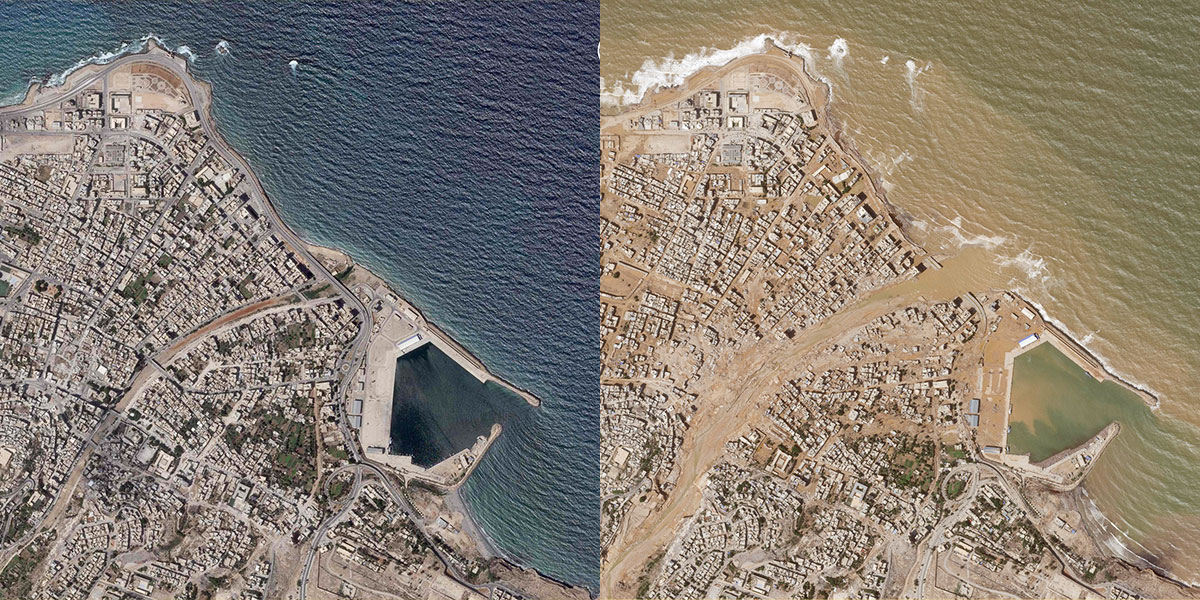In some parts of Libya, rainfall totals in just 24 hours exceeded the total typically seen in a whole year. It’s not uncommon for the region to receive a high proportion of its annual rainfall in a relatively short time, as it is generally very dry.
Read More: Unraveling Stereotypes – Embracing Diversity in African Expressions
But the rainfall from Storm Daniel – a Mediterranean hurricane-like system known as a “medicane” was particularly extreme and contributed to the collapse of two major dams and the devastating floods.
It’s too early to attribute with certainty the severity of this storm to rising global temperatures. But climate change is thought to be supercharging the rainfall associated with such storms, says Liz Stephens, an associate professor of climate risks and resilience at the University of Reading.
Read More: Nurturing Africa’s Biodiversity Through Innovation & Eco Education
Warmer oceans can give storms more energy, while a warmer atmosphere means they can hold more moisture. And experts say that this event sadly demonstrates how the impact of extreme weather is amplified where populations are vulnerable and adequate preparation not in place.









